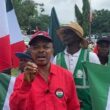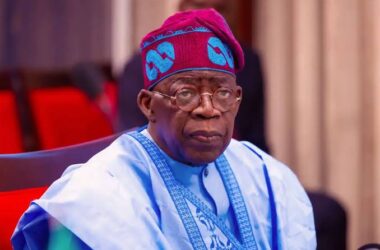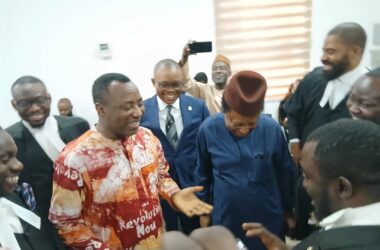Fuel marketers have projected that the monthly subsidy for Premium Motor Spirit (PMS), commonly known as petrol, now amounts to around N707 billion. This comes amid ongoing discussions about the landing cost of petrol, which stands at N1,117 per litre.
As the Dangote Petroleum Refinery prepares to begin petrol production in August, there are concerns that regulatory and supply chain challenges may lead the company to export its products. This is due to difficulties in obtaining crude oil from local sources, which might force Dangote to look to foreign markets to offset production costs.
On Monday, Minister of State for Petroleum Resources (Oil), Heineken Lokpobiri, convened a meeting with officials from Dangote Refinery, Nigerian National Petroleum Company Limited (NNPC), Nigerian Upstream Petroleum Regulatory Commission (NUPRC), and Nigerian Midstream and Downstream Petroleum Regulatory Authority (NMDPRA) to address these issues.
Meanwhile, the House of Representatives has launched an investigation into the shortage of crude oil for domestic refineries and allegations of inflated product costs. This comes as fuel marketers reveal that the landing cost of petrol, diesel, and aviation fuel far exceeds their current pump prices, suggesting the government continues to subsidize these products.
The Major Energies Marketers Association of Nigeria (MEMAN) recently disclosed that the landing cost of petrol is N1,117 per litre. Independent Petroleum Marketers Association of Nigeria (IPMAN) supports this claim, highlighting that the government’s subsidies are unsustainable and predicting a potential increase in pump prices.
IPMAN also noted that while the ex-depot price for petrol is N585 per litre, independent marketers often pay higher rates due to limited access to the product at this price, leading them to charge over N700 per litre at the pump.
The NNPC remains Nigeria’s sole importer of petrol, a position that has led to questions about the sustainability of the current subsidy system. The difference between the landing cost of N1,117 and the ex-depot price of N585 implies a subsidy of N532 per litre. With Nigeria consuming tens of millions of litres of petrol daily, this results in a substantial monthly subsidy.
Despite claims from the government and NNPC that subsidies have ended, recent data from MEMAN contradicts this, indicating significant ongoing subsidy payments. According to Mohammed Shuaibu, Secretary of IPMAN, the government’s refusal to fully deregulate the sector and allow market competition supports the continuation of subsidies.
Former Kaduna State Governor Nasir El-Rufai has also suggested that subsidies persist, despite official claims to the contrary. He emphasized the need for pragmatic policy adjustments in response to real-world challenges.
NNPC has remained silent on the issue, with its Chief Corporate Communications Officer, Olufemi Soneye, previously asserting that the firm is recovering full costs and no subsidies are in place.
As Dangote Refinery prepares to commence production, the company is contemplating exporting its petrol due to the high cost of importing crude oil from the United States. The refinery’s officials argue that the refusal of international oil companies to supply local crude at reasonable prices is undermining their operations.
The House of Representatives continues to scrutinize the situation, with Speaker Tajudeen Abbas emphasizing the need for compliance with global standards and ensuring the quality of imported petrol. The investigative committee is tasked with examining the entire petroleum supply chain, from importation to distribution.










